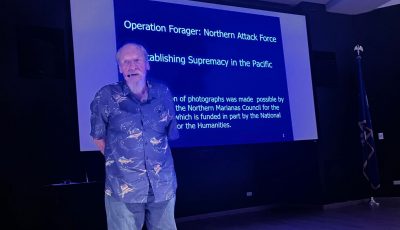Puerto Rico and the US territories: The need to resolve their constitutional and political issues
Last of a two-part series
Congress’ treatment of the territories over the past 125 years has mostly been uneven, disparate and, many times, unfair (if not condescending) to the people residing in the territories. For example, Congress enacted federal legislation in the ‘60s making the federal judges in Puerto Rico Article III judges with lifetime tenure. But the federal judges in Guam, the Virgin Islands, and the Northern Mariana Islands—for several decades now—remain Article I territorial judges, with a limited term of only 10 years. Another example of the disparate treatment of the territories’ and Commonwealth’s is the applicability of the Supplemental Security Income program to the Northern Mariana Islands, but not to the other territories. Indeed, a native of Puerto Rico who was receiving SSI financial assistance while living in Illinois became ineligible for the program when he moved back to Puerto Rico. Is this fair? Of course not.
So even Puerto Rico with over three million people, many times, has found itself on the short end of the congressional stick. For example, in 1950, Congress passed federal legislation that asked the people of Puerto Rico to decide whether it agrees with Congress’ proposal for the people of Puerto Rico to draft and adopt their own local constitution. Amidst much fanfare and hoopla back then, the people of Puerto Rico agreed with the proposal of Congress, based on their understanding that, by adopting their own constitution, they would be establishing a new political relationship with the United States, i.e., Puerto Rico would become a “commonwealth” of the United States, and the people of Puerto Rico would have autonomy over all commonwealth matters, just like the way each state controls its internal affairs.
Unfortunately, this belief—that the people of Puerto Rico would have autonomy over their internal affairs—was dashed by several Supreme Court cases that were rendered just within the past several years. For example, Congress enacted federal legislation a few years ago that established a “Financial Oversight and Management Board” to oversee and manage the financial affairs of the bankrupt government of Puerto Rico. Most unusually, Congress gave this federally established oversight board the power and authority to supersede the power and authority of the duly-elected governor and legislature of Puerto Rico, with respect to Puerto Rico’s finances and debt obligations. Puerto Rico was then (and apparently still is) in bankruptcy to the tune of $70 billion originally.
The federal legislation came up for review before the Supreme Court on the issue of whether the members of the financial oversight and management board were subject to confirmation by the U.S. Senate on the assertion that they are “federal officers” since they were appointed by the U.S. President (See Financial Oversight and Management Board v. Aurelius Investment LLC, Case No. 18-1334, decided June 1, 2020). The Supreme Court ruled that, although the financial oversight board members were appointed by the President, they are “not federal officers” and, therefore, are not subject to Senate confirmation.
The court decided that, although appointed by the President, the board members rather are “officers of the Commonwealth of Puerto Rico” and do not require U.S. Senate confirmation because of the “primarily local duties of the board.” This is so, notwithstanding the fact that the federal legislation that enacted the Puerto Rico Oversight Management and Economic Stability Authority (“PROMESA”) also gave the PROMESA board powers that infringe on and supersede the power and authority of the duly-elected executive and legislative officials of Puerto Rico.
The Supreme Court decision, with respect to the PROMESA board members, shows that, although Puerto Rico was given authority in 1950 under U.S. Public Law 600 to govern itself internally, Congress could still, at any time, step in, intrude or even take over the internal and local affairs of Puerto Rico. The Supreme Court ruling shows that the Territorial Clause is “still alive and well” in Puerto Rico, notwithstanding the fact that 72 years ago, Congress had enacted Public Law 600 so that Puerto Rico could adopt its own constitution and assume full authority in governing itself internally. In establishing the PROMESA board as “a commonwealth entity” but with powers that supersede the powers of the elected officials of Puerto Rico, Congress has, in effect, reneged on its 1950 commitment under Public Law 600 to give the Commonwealth of Puerto Rico full autonomy over all commonwealth matters, including its finances and debt obligations.
Still another recent Supreme Court case—Commonwealth of Puerto Rico v. Sanchez-Valle—decided that, unlike the 50 states, Puerto Rico is not a “sovereign” entity and as such, under the Double Jeopardy Clause of the U.S. Constitution, Puerto Rico cannot prosecute a person under Puerto Rico law, for the same offense that the person has already been prosecuted by the federal government under federal law. The court ruled that Puerto Rico derives its local authority to prosecute through the same source as the federal government—i.e., U.S. national sovereignty.
•••
So where do things stand today with respect to the U.S. territories and the people who live there, in view of Congress’ continuing plenary powers over the territories? It appears, based on the recent Supreme Court rulings, that the status quo still stand as it did when the Insular Cases were first decided in 1901. In other words, Congress still has “veto powers” over all territorial government affairs, pursuant to the Territorial Clause. The local autonomy of the territories including Puerto Rico, if there is any, takes a back seat to the Territorial Clause of the U.S. Constitution. This constitutional provision is the federal government’s “trump card” (no pun intended) over the territories. When events in the territory go awry, as it sometimes happens, Congress can step in and take control of things.
But aside from the foregoing issues involving Puerto Rico and the other U.S. territories, the truly fundamental problem affecting the people of the territories relates to their inability, as U.S. citizens, to fully participate in the political affairs of their mother country—the United States. Praised as “the first democracy” when it was established in 1789, the United States ironically still has four million U.S. citizens in the territories and commonwealths who are not allowed to vote for the U.S. President. Also, because the territories and commonwealths are not states, their citizens are not constitutionally represented in the U.S. Congress with their own elected representatives, at least in the House of Representatives.
Most unfortunately, the U.S. Supreme Court, to this day, is still reluctant to set aside its racist 1901 ruling in the Insular cases, which decided that the territories are “not a part of the United States” until such time as the Congress declares that a territory is “destined for statehood.” Only then would the U.S. Constitution apply to that territory and become an “incorporated territory” of the United States. Only then would it be considered “a part of the United States.”
Ultimately, most of the fundamental problems that the territories and their citizens have with their mother country stem from the outdated and archaic nature of the Territorial Clause that effectively says that Congress has “plenary powers” over the territories. In order to rectify and correct the constitutional problems confronting the territories, the U.S. Constitution must be amended so that, among other things, all U.S. citizens in the territories could vote for their President and be given full-fledged representation in Congress.
It is time for the U.S. Constitution to apply to all the territories, not just the 50 states. After all, the U.S. territories are not part of a foreign country. Neither should they be treated as a piece of real property that could be disposed of by the U.S. Congress.
Jose Dela Cruz (Special to the Saipan Tribune)
Jose Dela Cruz is a former chief justice of the NMI Supreme Court.



























